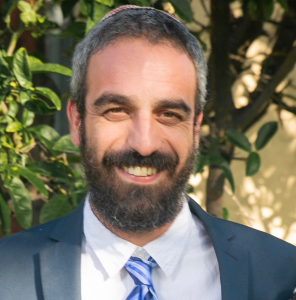310.474.0559 / webmaster@kahaljoseph.org
10505 Santa Monica Blvd., Los Angeles, CA 90025
310.474.0559 / webmaster@kahaljoseph.org
10505 Santa Monica Blvd., Los Angeles, CA 90025
 Rabbi Natan Halevy
Rabbi Natan Halevy
Parashat Balak 5784, BSD
Shalom Uvracha.
On the verse of this week’s Torah portion,
“Balak son of Tzipor saw all that Israel had done to the Emorites”, The midrash comments, “Balak son of Tzipor saw” – this is what the verse said: “The Rock(referring to Hashem), His actions are perfect, as all His ways are justice”. The Holy One blessed be He did not leave the nations of the world recourse (or excuses) in the future to say: ‘You distanced us from you Hashem!’ What did the Hashem do?
Just as He established kings, sages, and prophets for Israel, so He established for the nations. He established Solomon king over Israel and over all the earth, the same as He did for Nebuchadnezzar. Solomon built a Temple and recited several songs and praises; Nebuchadnezzar destroyed the Temple, cursed, blasphemed Hashem, and said: “I will ascend above the heights of the clouds, [I will be comparable to the Most High]”. Hashem gave David wealth and he purchased a Temple to Hashem’s name. And Hashem gave wealth to Haman and he purchased an entire nation, to slaughter it.
Every prominence that Israel took, you find that the nations took a corresponding prominence. He established Moses for Israel and Bilam for the idolaters. Look at what distinguishes between the prophets of Israel and prophets of idolaters. The prophets of Israel cautioned Israel to refrain from transgressions, as it is stated: “You, Son of man, I have appointed you as a sentinel for the house of Israel. You shall hear a matter from My mouth and you shall warn them from Me”.
But a prophet (Bilam) that stood from the gentiles established a breach in order to eliminate people from the world. Moreover, all the Jewish prophets were with the attribute of mercy toward Israel and toward the idolaters, as Jeremiah says: “Therefore, my heart will sigh like flutes for Moav”. And likewise Ezekiel: “You, son of man, raise a lament for Tyre”.
But that one [Bilam] was cruel; he stood to uproot an entire nation gratuitously. That is why the portion of Bilam was written; to inform why the Holy One blessed be He removed the Divine Spirit from the idolaters, as this one stood from them, and look at what he did.
We see from this Midrash that an abuse of power is not something that Hashem takes lightly. And for this reason he has gifted our nation with so much wisdom, power, success and insight. We have been blessed with the trait of humility which is so important for anyone who is in a position of power. We live in a time when so many nations in the world have been blessed with power and are abusing it. Instead of focusing on peace and growth and benefiting their people, they focus on harming their own people and remaining in power at all costs. Thus many of these same nations are choosing to focus on enmity to Israel. Instead of focusing on the bettering of their people, lands and the world.
We send out a prayer to Hashem that he brings a change to the world, as stated by the prophet Tzefania, “For then I will convert the peoples to a pure language that all of them call in the name of the Lord, to worship Him of one accord”. And in the words of the prophet Isaiah “They shall neither harm nor destroy on all My holy mount, for the land shall be full of knowledge of the Lord as water covers the seabed”.
May we merit to see these miracles speedily in our times.
Shabbat Shalom Umevorach!